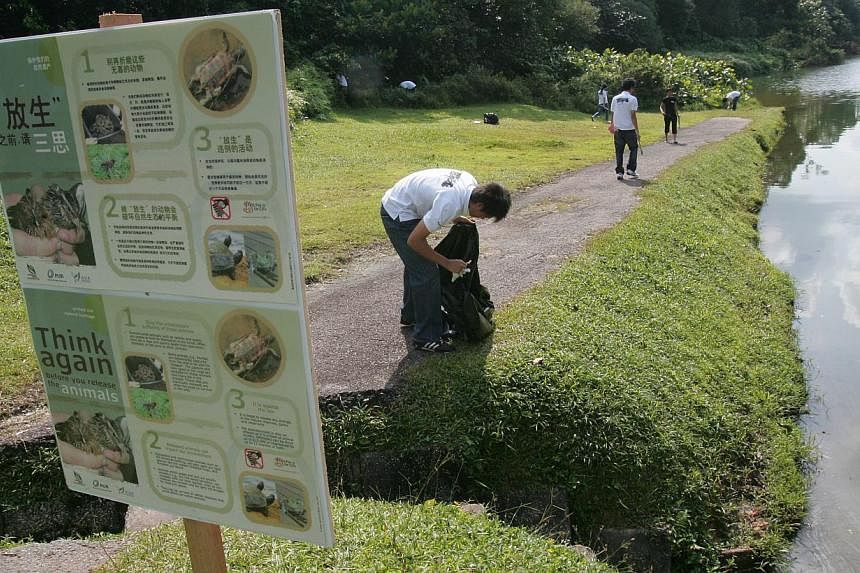SINGAPORE - The authorities will step up enforcement on people who release animals into the wild.
From Saturday to the end of the month, officers from the National Parks Board (NParks) and national water agency PUB will be stationed periodically at 19 parks, nature areas, reservoirs and waterways.
They will be joined by volunteers, including those from community groups Waterways Watch Society, Punggol South River Watch Group and Toddycats!.
The effort will be part of Operation No Release, an annual campaign aimed at raising awareness against releasing animals into the wild.
NParks, PUB and the Agri-Food & Veterinary Authority said in a joint media release that they will educate and advise members of the public on the harm of releasing animals into the wild.
Household pets, for example, often do not survive in the wild as they do not have the natural instincts and ability to forage for food or fend for themselves.
"Many of the released animals are unlikely to survive, and most often, face a slow and painful death, as they are unable to cope with their new surroundings," said Mr Wong Tuan Wah, director of conservation at NParks.
"Those that are bred or captured deliberately to be sold for release usually become so stressed during their captivity that they are too weak to survive in the wild when released eventually," he added.
The agencies advised pet owners who are unable to look after their pet to find a suitable second home for the animal, or seek the help of an animal welfare group in rehoming their pet.
Animals that do survive would affect the environment by upsetting the ecological balance. They do so by preying on the native species, out-competing them for resources or introducing new diseases, said the agencies. An example would be the American Bullfrogs which are known to breed prolifically and compete with local frogs for food and space.
Mr Ridzuan Ismail, director of catchment and waterways at PUB, said the health and functionality of reservoir habitats is influenced by the diversity and ecology of aquatic organisms living within them. The release of animals into reservoirs and waterways may have ecological impacts on the freshwater ecosystems.
"This year, we are extending our efforts to more locations and we hope to raise greater awareness on this issue," he said.
The operation takes place on the run-up to Vesak day. Animals such as birds, fish and red-eared terrapins, and more recently insects such as crickets, are usually released by devotees at reservoirs and parks as a symbolic gesture of compassion on Vesak Day, which falls on June 1 this year.
First-time offenders caught releasing animals may be charged under the Parks and Trees Act and could be fined up to $50,000, jailed up to six months, or both.

